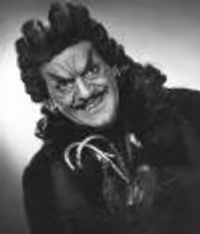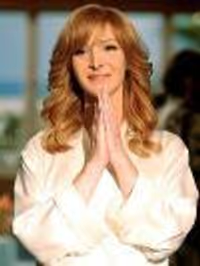Post 9/11 musical theatre
#1Post 9/11 musical theatre
Posted: 4/18/07 at 12:17pmI'm writing my senior project paper on this topic, and I was wondering if anyone knew of any good sources (books, websites, DVDs, etc.) I could check out to start researching. Thanks.
#2re: Post 9/11 musical theatre
Posted: 4/18/07 at 12:19pm
I don't think any have been written yet.
There was a thread on this board months ago about post-9/11 Broadway. You can search for that for a start. Mentions some of the shows that closed due to 9/11 (BAT BOY, etc.).
--Aristotle
#2re: Post 9/11 musical theatre
Posted: 4/18/07 at 12:21pm9/11 is mentioned in the preface of the URINETOWN libretto. That evening was to be one of the press performances.
--http://www.benjaminadgate.com/
#3re: Post 9/11 musical theatre
Posted: 4/18/07 at 12:26pm
That mention of Batboy just reminded me of a great theatre experience when I saw it off-broadway. It was the "closing" performance....they closed for a break, and then re-opened. Anyway, it was 2 or 3 weeks after 9-11, and there were about 15 firefighters in the audience. They were all wearing their FDNY t-shirts, and were all comped in, and before the show started, someone came out on the stage, and had the firefighters stand up for the recognition of thier amazing efforts. we applauded for about a minute, and then sat down and enjoyed one of the funniest performances I have ever seen, that took our minds off the tragedy for a little over two hours.
I will never forget that night in the Union Square theatre.
jbdc
Leading Actor Joined: 3/17/07
#4re: Post 9/11 musical theatre
Posted: 4/18/07 at 12:28pm
Susan Stroman has spoken about it in terms of Thou Shalt Not and the decision to keep the show open, even though nobody wanted to see a show about adultery, rape, murder, and Kate Levering topless.
Also Tony Kushner has spoken about it--something like: because we refuse to acknowledge in this country that death means something, and we (as a nation) said that to mourn is to let the terrorists win, then art (and by art he was talking about theatre) had to become more pure entertainment, and more nationalistic. But now, some years late, the theatre that deals with idenity politics is becoming important again. --Because you can't bypass the mourning--and if you try, you'll eventually have to come back to it.
I realize this may not make sense--but I'll try to find the actual essay.....
Updated On: 4/18/07 at 12:28 PM
#5re: Post 9/11 musical theatre
Posted: 4/18/07 at 12:40pm
there have a few straight plays that deal with 9/11. If you can change your thesis I think you'll find you're research much more fulfilling.
Off the top of my head I can suggest "The Guys". There are more, perhaps some of our fellow posters can assist.
Julian2
Broadway Legend Joined: 8/10/06
#6re: Post 9/11 musical theatre
Posted: 4/18/07 at 12:46pm
Stuff Happens? Or was that about Iraq? I would imagine 9/11 is discussed.
MargoChanning
Broadway Legend Joined: 4/5/04
#7re: Post 9/11 musical theatre
Posted: 4/18/07 at 12:46pm
Here's an earlier thread on the topic that might be informative to you:
https://forum.broadwayworld.com/readmessage.cfm?boardname=bway&thread=925546
theatreboi11
Broadway Star Joined: 5/9/05
#8re: Post 9/11 musical theatre
Posted: 4/18/07 at 12:49pmI know there is a play called "WTF" about a guy trying to find a roommate after his former one died in the towers.
#9re: Post 9/11 musical theatre
Posted: 4/18/07 at 1:27pmNot really a major source, but in a newspaper article about the original The Fantasticks closing (just search for articles about it on EBSCO or Academic Universe before 2003), 9/11 was listed as one of the reasons there was a slump in sales.
Mattbrain
Broadway Legend Joined: 11/23/05
#10re: Post 9/11 musical theatre
Posted: 4/18/07 at 1:34pmWell, for the first few years after 9/11, we were seeing a lot more musical comedy than musical drama. However, when The Light in the Piazza opened, things turned around again in my opinion. And now, we have Grey Gardens and Spring Awakening. Jukebox musicals and movie musicals fell out of favor as quickly as they became popular.
jbdc
Leading Actor Joined: 3/17/07
#11re: Post 9/11 musical theatre
Posted: 4/18/07 at 2:58pm
Mattbrain is right.
But you also have to look at how things were before 9/11 to know how they changed. Performance theory focuses on how bodies are presented on stage or film. There were a lot of dance based shows in the 1990s where dance was also a dramatic and political device--Show Boat (race/class/gender), Carousel (class/gender), Noise/Funk (race/class/gender), Swan Lake (class/gender), Contact (gender/identity), even Lion King, though not overtly political (or even covertly) followed suit in the complicated style of dance that it used in it's story telling. It was all about the performer's body in the space--and the different things you could do to or with the body told the story. In performance theory--the body is political--and the race/class/gender issues create the drama of the story. The drama happens at the intersection where gay/straight, man/woman, black/white collide. That is identity politics. It doesn't really lend itself to comedy, unless it is ironic or campy.
That disappeared from the Broadway musical after 9/11. Thoroughly Modern Millie's tap ensemble beat out Susan Stroman's psycho/sexual nightmare choreography for Oklahoma! at the Tony Awards. It wasn't about the body anymore--it was about the mass chorus and precision in a jewel-toned world with bright lights. That is nationalistic. Stars and stripes forever and all that. Movin' Out tried to have it both ways. But that was virtuosity, and the story was 100% American in theme. So it still fit in the Nationalistic mindset of the general public. There weren't gay people or minority struggles (except in the awkward S&M scene--so they got blocked out our minds right away). Then Wonderful Town. Fun fun fun. La Cage revival--not a commercial success by any stretch of the imagination. won the tony for choreography. But it was camp. Chorus numbers--just like Millie. Only with men as women. If men had done it as men--it would have closed even faster. Hairspray approaches race (to a point), but, like La Cage--it is camp. Man as Woman. Instead of using the body, it knowingly disguises the body. Avenue Q works the same way--by using puppets, it removes race/class/gender from the real world to speak about them in hypotheticals--out of the realm of the real world. It's easier to digest. Wicked I think they just forgot to choreograph. Actually--Wicked is the post 9/11 musical that got to have it both ways and succeed. It has identity politics in it, but they are green people. So it's one step removed--like the camp musicals. It also has anti-nationalistic themes, but with the production values of a show that would seem to be all about grandeur and mass spectical.
Caroline, or Change is about identity politcs and used bodies even as appliances--the bodies of the working class, but not many people wanted to see it. It's important to note how many people want to see it now around the country and in London vs. 3 years ago.
And the Pajama Game. Bodies in pajamas having fun fun fun.
Finally, in 2006 we got Spring Awakening (which was supposed to premier in 2001 at Long Wharf). Michael Mayer and Bill T. Jones brought identity politcs back to Broadway through their staging. Bodies are everything to that show. Christine Ebersole's body is the poster and advertising art for Grey Gardens all over the city. The body is the center of that show, too.
I think we are finally ready for the era of nationalism an the quaintness of old comedies affecting our current culture to pass.
Light in the Piazza was a step in the process also, but I never got to see it, so I don't want to go too in depth on it.
That's my take, for what it's worth.
Use reviews of shows as sources and come up with your own opinions, since nothing is written on this, b/c it's so current. Professors like students to have their own ideas, rather han regurgitating some scholar's, anyway. If you need sources--a lot has been written on performance theory. Search for books about Performance Studies. You can just apply your favorites to the shows of the last ten years.
Updated On: 4/18/07 at 02:58 PM
Mattbrain
Broadway Legend Joined: 11/23/05
#12re: Post 9/11 musical theatre
Posted: 4/22/07 at 9:07amYeah, Wicked was kind of another step in that direction because the material is far from what people were looking for in a post-9/11 musical.
#13re: Post 9/11 musical theatre
Posted: 4/22/07 at 9:29amI think there is also mention of it in Episode 6 of Broadway the American Musical and includes the commercial than ran to get people back into the theatres. It also includes a clip of the then Mayor saying come back and see "The Producers".
#14re: Post 9/11 musical theatre
Posted: 4/22/07 at 9:57amWicked was EVERYTHING post- 9-11 NY was looking for. It was fancifull, excititng, and a spectacal. While there are some politics in there, it's all about friendship and love and personal triumph - everything NY needed to be reminded of.
To Kill A Mockingbird
Videos









